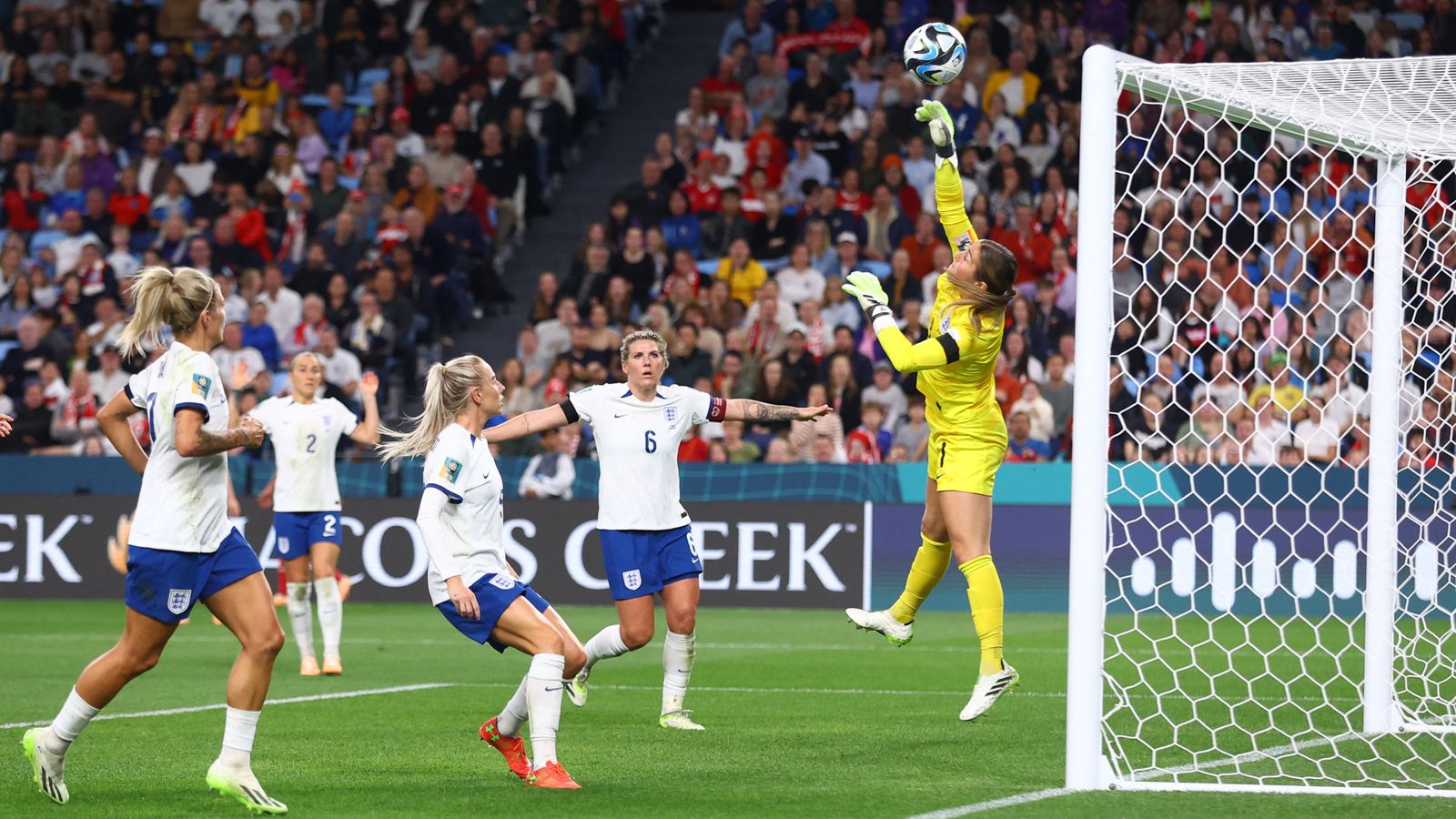FIFA should ensure there is equal prize money by the next Women’s World Cup, the United Nations agency for women’s rights has told Sky News.
The governing body’s president, Gianni Infantino, has said it is “our ambition” to ensure there is pay parity for the 2026 men’s World Cup and the 2027 women’s event.
But he called it “the most difficult step” closing a gap that sees the men’s tournament enjoy a prize fund that is four times larger.
“We’ve heard that by the next Women’s World Cup in 2027 that at least the prize money will be equalised with the men’s World Cup,” UN Women sports lead Jennifer Cooper told Sky News.
“So let’s see – we’ll be holding them to account to make sure that happens along with the players’ union, FIFPRO. They’re really holding their feet to the fire.”
The prize fund for the 32 Women’s World Cup teams is £86m ($110m) compared to £344m ($440m) given to the men’s teams in Qatar last year.
UN Women has partnered with FIFA at this ongoing Women’s World Cup to promote gender equality, with that message featuring on some captains’ armbands.
Women’s World Cup: As heavyweights crash out, cautious Lionesses prepare to face Nigeria
Bruce Mwape: Zambia FA ‘surprised’ over misconduct claims against women’s team head coach
England Women reporter notebook: Sarina Wiegman’s Lionesses bite back with China rout
Ms Cooper said: “As far as the equalisation of pay and salaries etc going down to the national level of all 211 of the national federations FIFA governs, that I think will take a while.
“And it will require, I think, additional transparency and reporting on the use of funding that FIFA at the global level, as how those funds are distributed and used.”
FIFA does have cash reserves of more than £3bn – giving it the financial cushion to raise funding for the Women’s World Cup.
But Mr Infantino has put the onus on sponsors and broadcasters to put more money into women’s football – highlighting their greater investment in the men’s game.
“Without this kind of investment, it’s actually a missed opportunity,” Ms Cooper added.
FIFA has also sought to ensure players receive a minimum income for the first time from playing at the World Cup – from $30,000 each for those exiting early to $270,000 each for the champions.
England forward Bethany England said at the team’s base today: “The more the game grows and becomes a bigger, wider spread for the female game, we deserve to be paid at least a reasonable amount for that.
“I don’t think it’s unacceptable to be asking for such a thing.”
Ms Cooper praised FIFA’s “accelerated pace of trying to equalise prize money” and funding projects that are not just aimed at the elite nations to grow women’s football widely.
“I think it’s really wise and I’m impressed by this speed,” Ms Cooper said. “We’re not there yet.”
National federations will be given the responsibility of distributing FIFA’s cash to players – raising concerns about whether it will reach them.
Some World Cup finalists – most recently last-16 side Nigeria – have complained about being owed bonus payments, camp allowances and expenses.
Families of Jamaica’s players resorted to crowdfunding to mobilise more financial support for the training camp and support staff.
“I really hope that the World Cup this year will show those federations at the national level what it takes to actually have teams to qualify,” Ms Cooper said.
“And that it’s not just the right thing to do, but it’s a smart thing to do to support those women’s teams at national level.”
Be the first to get Breaking News
Install the Sky News app for free
FIFA’s last published research showed the average global salary for female professional players is only $14,000 (£10,800) and many countries still lack professional women’s leagues.
“[Players] are not earning enough to support themselves and their families from the sport that they play,” Ms Cooper said.
“So this has to change. It’s a little bit slower than what we see at the level of this top prize money. But at the same time, I see that the accelerated pace of change is very encouraging.”
The development of women’s football was stalled by being banned in England for 50 years until 1971, which had a knock-on effect globally with countries, including Australia, not providing resources to female players.
Now, UN Women argues is the time to invest.
“I don’t see it as reparations,” Ms Cooper said. “I just see it as it’s the smart thing to do.”








